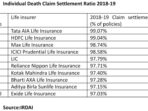Insurance Premium Simple Definition – Broadly speaking, the price of the premium is paid from the top and outside of the basic or internal value. Regarding the price paid for the protection for damage, danger or damage (eg insurance or option contracts). The word “premium” is derived from Latin
The price that exists in a kind of core value is called an extra and allegedly operating assets or objects. Properties may result in increased demand, limited supply or increased value in the future as a result of increased value.
Insurance Premium Simple Definition
Premium bond is a bond trade above its nominal value or in other words; It costs more than the nominal amount of the bond. The bond could be against the premium as it is higher than current prices on the market.
What Is Loading In Insurance & How Does It Affect Your Premium
The concept of the bond price prize is related to the principle that the bond is reversed with interest rates; If security with a fixed income security is purchased as an extra, this means that the interest rates at that time are lower than the bond coupon interest. Therefore, the investor pays a premium for an investment that refunds an amount higher than existing interest rates.
The risk prize includes active return, which is expected to be higher than the return without efficiency. The active risk prize is the form of compensation for investors. This represents the payment to investors to withstand additional investments that exceed Arisk-free assets.
Similarly, the share risk prize refers to excessive return on the Thstock market at risk. These surpluses include investors to take a relatively higher risk of stock investment. The amount of the premium varies and depends on the risk of a certain portfolio. Itoso changes over time while the market risk fluctuates.
Options bonuses are the cost of buying options. The options give the owner (owner) the right, but not the obligation to buy or sell the underlying financial instrument at a certain training price. The transfer of the bond shall be reflected in the interest rates or risk profile from the date of issuance. The buyer of the option is right, but not an obligation to buy (call) at a certain period at a certain period of time or to sell the basic instrument (for sale).
Unearned Premium Vs: Earned Premium: Understanding The Difference
The paid premium is an internal value plus its time value; A longer adulthood always costs more than the same structure, in shorter adulthood. Market volatility and how close the training price is compared to the market price of that time.
Advanced investors sometimes sell one option (also known as writing options) and use the resulting bonus to cover the cost of purchasing the instrument underlying. Buying multiple options can increase or reduce the risk profile, depending on how it is built.
The insurance premiums include compensation that the insurer receives a payment risk if there is an event that causes coverage. The prize may also include a sales agent or a broker. The most common coverage is the insurance of car, health and homeowners.

Prizes are paid for several types of insurance, including health, homeowners and rental insurance. These payments must be submitted in normal mode or schedule to continue the policy. A common example of insurance premium comes from car insurance. The owner of the vehicle can ensure the value of his vehicle for loss of accident, theft, fire and other possible problems.
Life Insurance And What You Need To Know
The owner usually pays a solid premium in return for the guarantee of the insurance company in order to cover the economic losses carried out on the basis of the extent of the contract. The prizes are based on both the risk of the insured person and the desired coverage.
Paying a prize generally means paying for something that exceeds the current rate due to the added value or demand and demand balance. Payment of the premium may also be more closely referred to as payments of an insurance policy or an option contract.
Synonyms of “Premium” include price, compensation, dividend or bonus. In insurance and option trade, it may be synonymous with the “price”.
Premium prices are a marketing strategy in which the price of a particular product is tactically determined as the main version or competition of this product. Premium prices are aimed at transmitting higher quality or desirability than other options.
Understanding What Is Life Insurance, Its Types And Benefits
Calls for writers to use primary sources to support their work. These include white papers, government data, preliminary reports and interviews with experts in the field. If necessary, we also refer to the original research of other well -known publishers. You can find more information about the standards we follow in our editors in the exact and impartial content of production. The insurance premium is the amount the person or company pays for the insurance policy. The insurance premiums are paid for policies that include a variety of personal and commercial risks. If there is no powers payable, the insurance company can cancel the policy.
Upon signing up for an insurance policy, your insurer will charge you. This is the amount you pay for the validity of the policy. Political products on Maychos’ capabilities to pay for their house insurance contributions. Some insurers allow the policyholder to pay the insurance premium in installments – for example, monthly or per year – others may claim a prepayment each year before the start of coverage.
In addition to insurance premiums, additional costs may be in addition to the insurer, including taxes or services.

Insurance companies make money by collecting insurance premiums and investing its income in secure financial instruments, such as bonds. As soon as the insurance company earns an insurance premium, it is usually for the carrier. There is also a liability under the bonuses involved, as the insurer must submit the cover for the requirements of the policy.
Understanding Partially Self-funded Insurance Plans
Insurance companies are considering a variety of factors to decide how much extra charge they require for a certain political assessment. While some of these factors are common in most types of insurance (such as insured age), others vary depending on the type of cover,
The most important factors in your driving register, geographical location, your car (s) type, which are insured, sex, gender, credit record and age are the most important factors. Another consideration is the type of insurance cover you buy contains the boundaries of the coverage and the deductible.
For example, a teenage driver living in a urban area may be given the opportunity to be higher than a teenager in the suburbs. Younger and newer drivers also have a greater risk of participating in the accident than older, more experienced drivers. In general, the higher the risk, the more expensive the insurance premiums.
The most important factors that a company look at in the price pavement, the risk of death, the interest he or she hopes to earn by investing in your premium and expenses that it incurs. The age when you start with coverage determine the amount of your premium with other risk factors (for example, your current health). The younger you are, the lower your bonuses in general. Conversely, the older you get, the more you pay extra charges to your insurance company. High value also carries a higher permium.
Insurance Policy Coverage Details
Because the life insurance policy covers many years, there may be more flexibility in paying bonuses. Some insurers can provide additional cash flow payment plans. These plans allow the policyholder to pay extra at small intervals. Some of the persons can also use the funding of the premium to pay expensive bonuses, but there is a risk in this process.
The Affordable Care Act of 2010 (ACA) has drafted several rules that regulate how the insurance company can determine the determination of their required insurance premiums. There are five important factors for companies providing coverage in the ACA Market Insurance Market that can use to determine insurance: age, insurance plan category, your geographical location, tobacco consumption and whether registration covers a person or family. Market plans also have to accept the same rates and not take into account your health history.
Insurance companies are employees who determine the risk of the risk of insurance policy and political groups. However, as the rise of advanced algorithms and artificial intelligence changes the price and sell the insurance, people’s actuaries are still the key to the process. Aduices use mathematics, statistics and financial theory to analyze the economic costs of potential risks in a political or policy group. They are based on analyzing past experiences and creating future results from computer models so that they can make insurance premiums that can make a profit if they require competitive prices.

Once the bonuses have been determined, the insurers will use this customer income to cover their support policy. They can also invest additional charges for higher returns. This may compensate some of the costs







